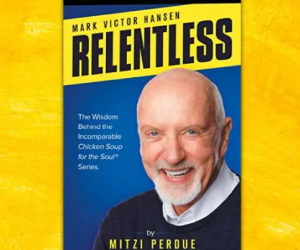Ask About Low Sexual Desire: There Are Options!
LOW SEXUAL DESIRE MAY OR MAY NOT BE TROUBLESOME
Almost 43% of women have low sexual desire. However, unless the condition is causing a woman personal or relationship distress, low sexual desire doesn’t rise to the level of Hypoactive Sexual Desire Disorder (HSDD). A DSM5 (Diagnostic and Statistical Manual of Mental Disorders, Fifth Edition) category sexual disorder. If a woman comes into your clinic with low sexual desire and it’s not bothering her, there’s no need to try to fix it. However, for the slightly more than 7% of women who are experiencing HSDD, this is a serious quality-of-life issue. Relationships depend on intimacy and in many relationships, physical intimacy is one of the cornerstones of intimacy. Loss of desire can be distressing by itself, but it can also mean a serious threat to her relationship.
Sexual dysfunction maybe classified into four categories:
Desire disorders — The lack of sexual desire or interest in sex
Arousal disorders — The inability to become physically aroused during sexual activity, including problems achieving and maintaining an erection (erectile dysfunction)
Orgasm disorders — The delay or absence of orgasm (climax)
Pain disorders — Pain during intercourse (This mostly affects women.)
IN ADDRESSING HSDD, FIRST CONSIDER PHYSICAL PROBLEMS
There may be an underlying physical problem such as diabetes, coronary artery disease, cancer, or arthritis. Or possibly there’s a physical problem causing pain such as vaginal atrophy or spasm. There may be a hormonal imbalance including lack of estrogen, or in the case of surgical menopause, the difficulties could come from a lack of testosterone. There could also be introital narrowing or vestibulitis and in these cases, therapy with vaginal estrogen, ospemifene, pelvic floor relaxation or use of dilators may help. Women who have pain avoid intercourse.
RELATIONSHIP ISSUES MAY ALSO CAUSE HSDD
If we’ve ruled out physical causes, next consider relationship stressors. For example, maybe she’s stressed and exhausted from dealing with aging parents, or she’s dealing with four teenagers. Or perhaps there’s been a distancing between her and her partner. Maybe there hasn’t been enough focus on the relationship, and if that’s the case, she might benefit from reading Reclaiming Desire by Andrew Goldstein and Marianne Brandon. Many books can help with making her sexual encounter more pleasurable and these books can also encourage her to make the relationship a top priority. Something else that can help: encourage her to plan the timing of their sexual activities. In the case of both her and her partner, their testosterone levels will be higher in the morning, and on the weekends, the couple may feel more rested and less stressed.
MEDICATIONS CAN ALSO BE THE PROBLEM
Maybe she’s taking medications that diminish her desire. Ones to consider include antidepressants (particularly serotonin reuptake inhibitors and tricyclics) and antihypertensives (beta blockers, diuretics). If this is the case, she shouldn’t just stop taking them. It may be important to change the medication or lower the dose, but she should work with the clinician.
FIBANSERIN MAY HELP
If other causes of HSDD have been ruled out, the recently FDA-approved medication flibanserin may help. It’s been called the “female Viagra,” but it’s different from Viagra or Cialis in several important ways. Flibanserin works by influencing neurotransmitters in the brain as opposed to increasing blood supply to the genitalia. It doesn’t become effective for four weeks and may take eight weeks to become fully effective. And even then, the effect is not strong, although it is statistically significant. Women using flibanserin typically have about one additional sexually satisfying experience in the course of a month. This statistic comes from using a base of two to three a month (or more precisely, 2.7 to 2.8 in the flibanserin trials at baseline).
FIBANSERIN SIDE EFFECTS
There are, however, some side effects. These include somnolence, nausea, fatigue insomnia, dry mouth, and dizziness. A major concern is that women who are taking flibanserin should not have alcohol. Both the providers and the patients have to sign a document stating that they understand that this drug is not to be taken with alcohol.
Given the side effects, it’s up to the couple to decide if the improvements they do experience are worth it. The health care provider needs to discuss these issues with the patient. Hopefully, they have already explored the other potential reasons for low libido prior to moving to medical therapy.
At the end of the day, a woman’s sex drive depends on being healthy and feeling good about herself and her relationship, not having pain, and avoiding medications that lower libido. Medical recommendations should occur in the context of the woman, her relationship and stressors, and what is most important to her and her relationship.
Search Articles
Latest Articles
Perdue: We’re in the Next War, but Without Bullets
https://www.newsmax.com/world/globaltalk/disinformation-troll-farms/2024/05/03/id/1163399 Publication –newsmax.com
Putin Has Vast Vulnerabilities: The Free Russia Foundation Wants To Reveal Them To The West.
https://www.dailywire.com/news/putin-has-vast-vulnerabilities-the-free-russia-foundation-wants-to-reveal-them-to-the-west Publication – dailywire.com
Visiting Ukraine | Mitzi Perdue & Clare Lopez (TPC #1,472)
Visiting Ukraine | Mitzi Perdue & Clare Lopez (TPC #1,472)Watch The Episode About The Episode Clare Lopez and she served in the CIA for 20 years. Spotify: https://open.spotify.com/show/4bIuk6mPLtjggUUGi9CRPQ?si=Cvn4e_GITyuGEiKI3CiSug&dl_branch=1
Russia’s Ugly Prisoner Exchanges
https://www.realclearworld.com/articles/2024/04/29/russias_ugly_prisoner_exchanges_1028042.html Publication – realclearworld.com
Subscribe to Updates
About Author

Mitzi Perdue is the widow of the poultry magnate, Frank Perdue. She’s the author of How To Make Your Family Business Last and 52 Tips to Combat Human Trafficking. Contact her at www.MitziPerdue.com
All Articles
Learn How to Turn Adversity Into Opportunity
Learn How to Turn Adversity Into Opportunity“Use adversity as a bridge to your destiny.” Those are nice words to live by, especially if it works and your destiny turns out to be fulfilling and rewarding. People probably view Mark Victor Hansen’s destiny as a...
When it Comes to Vendors and Services, Size Matters
When it Comes to Vendors and Services, Size MattersWhen you’re evaluating outside vendors or services for your family office clients, is the size of the company you’re looking at one of your important considerations? It was a crucial screen for my late husband, Frank...
Shifting to a High-Functioning Family
Shifting to a High-Functioning FamilyYou’ve heard of a Tale of Two Cities by Dickens, right? Today’s topic is a Tale of Two Families and the person who can tell the story is Steve Legler, a family business speaker, author, and advisor. The two families he has in mind...
Are You Paying Attention to Both Parts of Succession Planning?
Are You Paying Attention to Both Parts of Succession Planning?There are two major components of family business succession, but all too often family business owners focus on only one. The result is missed opportunities and the potential for family dysfunction. The two...
Your Family’s Greatest Heirloom
Your Family’s Greatest Heirloom“There’s nothing greater you can give your family than this,” says Jamie Yuenger, founder of StoryKeep. “Provide those who come after you with the tools for personal, emotional, and spiritual success.” The way to do this, she believes,...
Want your family business to last ? Five tips for getting there.
Want your family business to last ? Five tips for getting there. View ArticleSearch ArticlesLatest ArticlesSubscribe to UpdatesAbout AuthorMitzi Perdue is the widow of the poultry magnate, Frank Perdue. She’s the author of How To Make Your Family Business Last and 52...






